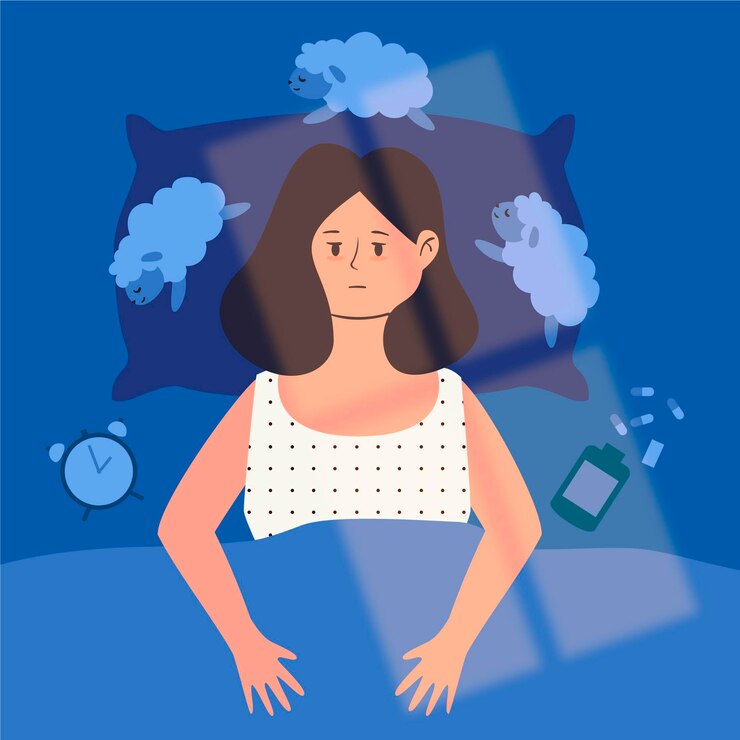
Parkinson’s Disease and Sleep Disorders: Managing Symptoms
Introduction: Parkinson’s disease not only affects movement but can also disrupt sleep patterns, leading to various sleep disorders. Understanding how Parkinson’s impacts sleep and learning strategies to manage these symptoms are crucial for improving quality of life. Let’s explore this topic in simple terms.
Understanding Parkinson’s and Sleep Disorders: Parkinson’s disease can cause sleep disturbances due to changes in the brain’s chemistry and the disruption of sleep-regulating neurons. Common sleep disorders associated with Parkinson’s include insomnia, excessive daytime sleepiness, restless legs syndrome, and REM sleep behavior disorder (RBD).
Managing Sleep Disorders in Parkinson’s:
- Establish a Sleep Routine: Maintain a consistent sleep schedule by going to bed and waking up at the same time every day, even on weekends.
- Create a Sleep-Friendly Environment: Make your bedroom conducive to sleep by keeping it dark, quiet, and cool. Use comfortable bedding and minimize distractions.
- Manage Medications: Some medications used to treat Parkinson’s symptoms may affect sleep. Discuss any sleep disturbances with your healthcare provider, who may adjust your medication regimen if necessary.
- Address Restless Legs Syndrome: If you experience discomfort or an urge to move your legs during sleep, practice relaxation techniques, or consider medications prescribed by your doctor.
- Manage REM Sleep Behavior Disorder (RBD): If you or your partner experience violent movements or acting out dreams during sleep, consult a healthcare professional for evaluation and treatment options.
- Stay Active: Engage in regular physical activity during the day, but avoid vigorous exercise close to bedtime, as it may interfere with sleep.
- Limit Stimulants: Reduce or avoid caffeine, nicotine, and alcohol, especially in the evening, as they can disrupt sleep patterns.
- Seek Professional Help: If sleep disturbances persist despite self-help strategies, consult a healthcare provider or sleep specialist for further evaluation and management.
Conclusion: Sleep disorders are common in individuals with Parkinson’s disease and can significantly impact quality of life. By implementing simple strategies such as establishing a sleep routine, creating a sleep-friendly environment, managing medications, and seeking professional help when needed, individuals with Parkinson’s can improve their sleep and overall well-being.
Sleep disorders are common among individuals with Parkinson’s disease, affecting both quality of sleep and overall well-being. Understanding and managing these symptoms is essential for maintaining a good quality of life. Here’s why it matters and some tips for managing sleep-related issues:
1. Importance of Sleep: Quality sleep is crucial for physical and mental health. It allows the body to repair and regenerate cells, supports cognitive function, and regulates mood.
2. Common Sleep Disorders: Individuals with Parkinson’s may experience various sleep disturbances, including insomnia, excessive daytime sleepiness, restless legs syndrome, and rapid eye movement sleep behavior disorder (RBD).
3. Impact on Symptoms: Poor sleep can exacerbate Parkinson’s symptoms such as tremors, stiffness, and cognitive impairment. It can also lead to increased fatigue, depression, and decreased quality of life.
4. Tips for Managing Sleep Disorders:
- Establish a regular sleep schedule and bedtime routine.
- Create a comfortable sleep environment that is quiet, dark, and cool.
- Limit caffeine and alcohol intake, especially in the evening.
- Engage in relaxation techniques before bed, such as deep breathing or meditation.
- Discuss sleep disturbances with healthcare providers to explore treatment options, such as medication adjustments or sleep aids.
5. Benefits of Better Sleep: Improving sleep quality can lead to fewer Parkinson’s symptoms, increased energy levels, improved mood, and better overall quality of life for both individuals with Parkinson’s and their caregivers.
By addressing sleep-related symptoms and implementing healthy sleep habits, individuals with Parkinson’s can improve their quality of sleep and enhance their overall well-being.
To seek medical advice, always consult a Doctor. Here are our recommended experts. Click here
To read more on Neurological Disorders. Click Here


